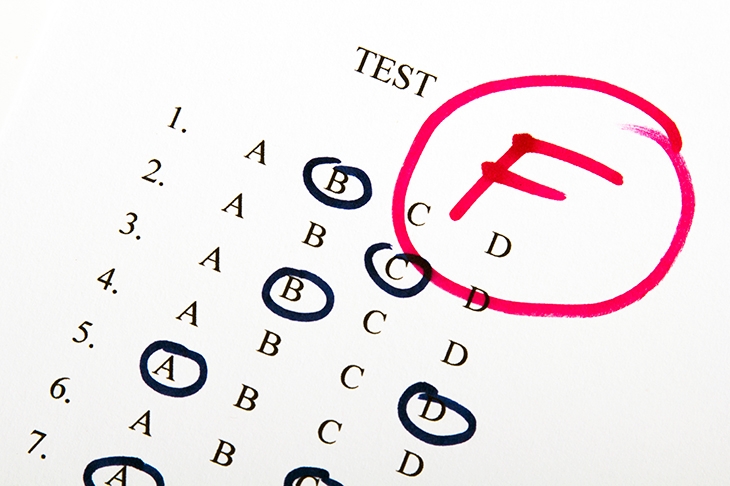I’ve contributed a chapter to an education book published this week by the Institute of Economic Affairs. I was asked by the editors, Pauline Dixon and Steve Humble, to assess the impact of Britain’s education reforms, beginning with the introduction of the National Curriculum in 1988, extending through the creation of league tables in 1992 and culminating with the opening of academies and free schools from 2002.
The first challenge was finding a reliable way to measure the effect of these initiatives. The introduction of the National Curriculum coincided with the replacement of O-levels and CSEs with GCSEs, making it difficult to compare before and after. In addition, the steady, year-on-year improvement in GCSE grades between 1988 and 2012 has to be taken with a large dose of salt, with most of it due to grade inflation. The positive spin New Labour put on its own record in education was belied by a 2009 Sheffield University study which found that 22 per cent of school leavers were functionally innumerate and 17 per cent functionally illiterate.
The OECD’s Programme of International School Assessment (PISA) seemed like a better bet. Not only does it measure the performance of British 15-year-olds in science, reading and maths every three years according to an inflation-proof standard, it compares their performance with that of schoolchildren in about 80 countries. For a variety of reasons, Britain’s performance in the first PISA survey in 2000 has to be discounted and we didn’t participate in 2003, so the starting point is 2006. And this isn’t me cherry-picking the data. On the contrary, if you compare the UK average in 2006 with the average in 2015 it’s a story of national decline in all three subject areas.
But the really useful thing about PISA is that it breaks down the results by UK region, so we can compare the performance of English, Scottish and Welsh schoolchildren. Since education policy is regionally devolved, that’s quite helpful. And the results show that, in fact, the performance of English 15-year-olds didn’t change significantly between 2006 and 2015, but the UK average was pulled down by the appalling results in Scotland and Wales, both of which have stubbornly resisted the reforms introduced in England. Scotland was number one in the UK in reading and maths in 2006, but is now trailing in third place.
One reason for Scotland’s decline is the introduction of the Scottish Curriculum for Excellence in 2010. This replaced Scotland’s traditional, subject-based curriculum with a hotchpotch of cross-curricular themes such as ‘sustainable development’ and has been a disaster. It’s over-bureaucratic, requiring teachers to engage in endless box-ticking exercises; it’s progressive and child-led, which means children from disadvantaged backgrounds fare worse than their peers; and it prioritises teaching children ‘21st-century skills’ rather than knowledge, with the upshot that more children are leaving school without a grasp of the basics.
That was brought home last week when Scotland’s largest private employer of apprentices, Score International, accused the country’s education system of failing young people. ‘We currently have 300 in our programme and over the past ten years, since the introduction of the Curriculum for Excellence, we’ve seen a steady decline in their basic grasp of numeracy,’ said Conrad Ritchie, the managing director. Ian Barbour, senior technical trainer at Score, said recent recruits can’t do fractions and regard maths as a ‘foreign language’.
Incredibly, the mastermind behind this catastrophe has been hired by the Welsh government to design an almost identical curriculum called, without apparent irony, Successful Futures. This is the latest blunder in what has been a series of missteps by the Labour-controlled Welsh executive, beginning with the scrapping of league tables in 2001. According to a team of researchers at the University of Bristol, that act alone explains a significant portion of the subsequent divergence in GCSE attainment between English and Welsh schoolchildren. In the PISA league tables, Wales is below every other UK region as well as the OECD average.
My conclusion is that England’s education reforms, driven by a conservative philosophy, have had a generally positive impact, while those in Scotland and Wales, embodying the opposite approach, have been disastrous. The book can be downloaded for free from the IEA’s website.







Comments